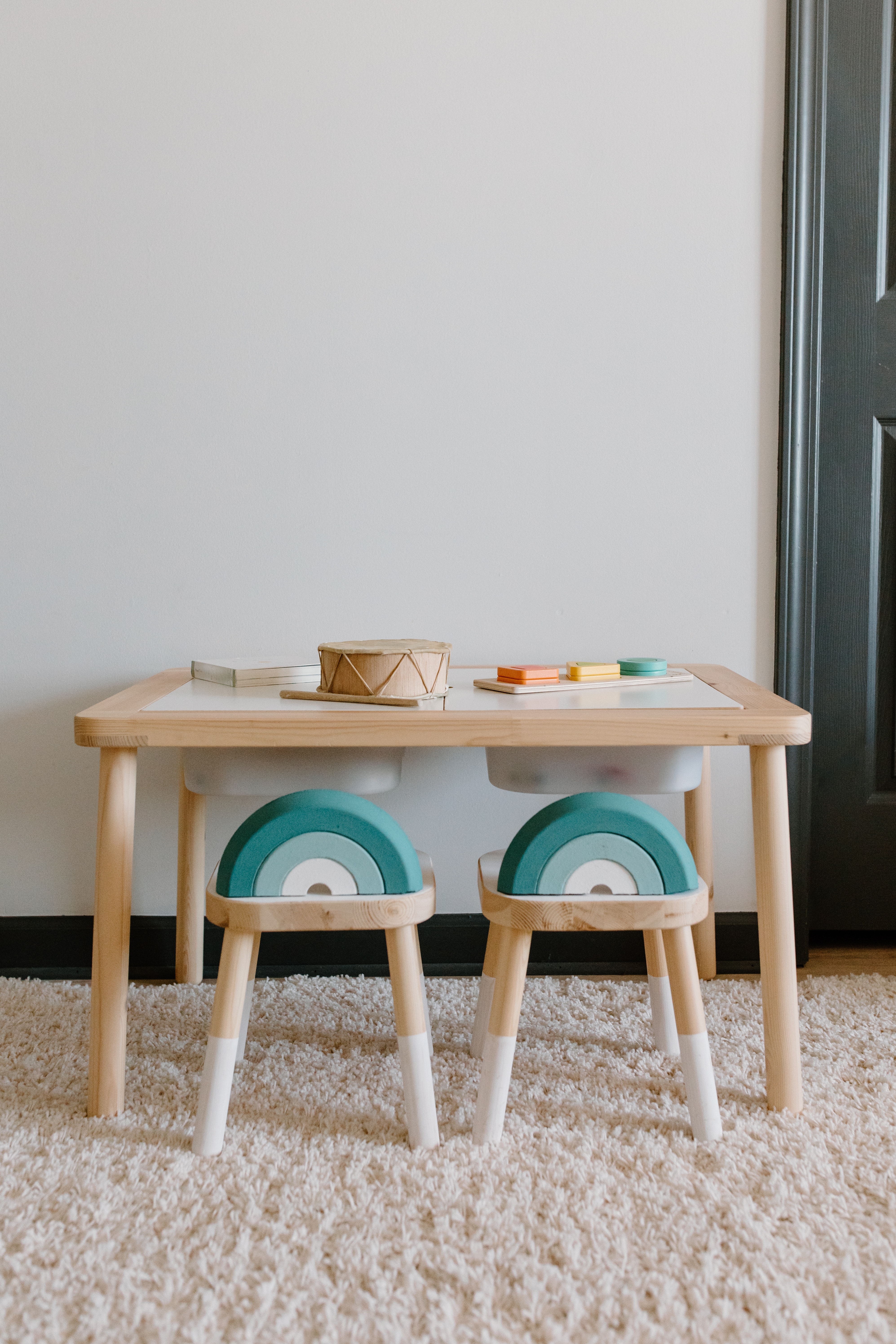A collection of pandemic related stories from alumni about their experiences in education.
“Six-foot Long Pool Noodles Enter Classroom” by Martha Maust, (’70,’79, ’89-‘94), Plain City, Ohio
This year was vastly different from any of my formal education or from my 48 years of classroom teaching. Last spring when Shekinah Christian School switched abruptly to online classes, I got a valuable crash course in technology. I learned how to record and post videos for the students. On Zoom I learned to do instruction for new concepts and host story times that connected heart-to-heart with my students.
In the fall as we returned to in-person classes the common word was “Adapt, adapt, adapt!” I had to position desks six feet apart, and we had to wear masks all day long. While not desirable, it was a sacrifice we wanted to make so we could be together in person. We’ve truly learned how to live abnormally. For example, I’ve always taught children to share. Now that is forbidden! It’s normal for children to huddle together in science class to observe things — like ants carrying big burdens. Now students must spread out. I bought pool noodles to help the children understand how far six feet is. (The noodles also add to recess fun!) Many learning games and activities had to be nixed by the “keep your distance/don’t share spaces” law. But we have also learned to be thankful that we can be in the classroom instead of even more distant from one another on our home computers.

“Caravanning to Local History Sites” by David Swartz (’96,’00-’02), Wilmore, Kentucky
Last spring before the lockdown I had just started on a local history research project. After several weeks of reading about nearby historical sites, I thought it would be fun to actually visit them. I also invited a couple of friends. Since we couldn’t interact face to face, I wrote a short audio script to narrate the tour. This evolved into scripts posted on Facebook, pictures in the comment section, and broader invitations for interested persons to accompany us on “Sunday afternoon drives.”
For typical Sunday tours as many as ten vehicles lined up in front of our house at 2 pm and followed our trusty maroon Toyota Sienna around Jessamine County to old slave plantations, cemeteries, a mushroom farm in an enormous underground cave, the ruins of a distillery, and bridges with more exciting histories than you’d ever expect. Over time, as we learned that distancing and masking made interactions safer, we began to leave our vehicles to walk around the historical sites together. We’ve made some unlikely friendships that still continue.
In February 2021 I led our fifteenth drive, this one to two nineteenth-century workhouses, places where persons convicted of minor crimes were sentenced to work off their fines by using sledgehammers to break rock for use in paving roads. The script explores how vagrancy laws and workhouses contributed to racial inequities that persist today.
These historical tours on Sunday afternoons aren’t changing the world, but I hope they have given our neighborhood a sense of history and community in a time of profound isolation. Here’s the hashtag I use at the beginning of each script: #physicallydistancedbutnotsociallydistanced
“Awkward Online Teaching Ends up Expanding Classroom” by Janine (’03,’05), Philadelphia, Pa.
I teach ESL at Temple University, and when we moved online last year, I felt like a brand new teacher, figuring out the ropes. It did not go well. Over the following months, I got more and more comfortable with online teaching, and I can even say at this point that I love it! My current class is made up of students who are joining us each day from Mexico, Germany, Saudi Arabia, China, Korea, and Philadelphia. Many of these students wouldn’t have been able to come to Philly for in-person classes, and it has truly been a gift to have them all together. I also don’t miss navigating my bike through Philly traffic to get to and from work each day.
“My Student Became my Teacher” by Joan Rae Mills (‘74) Greenwood, Del.
There was a disabled lady in our little town. Her 50 year-old son and his wife had recently moved home to care for her. Then both mother and son landed in the hospital with COVID. The wife was from Columbia; she had limited English, few friends, didn’t drive and was now home alone. As an ESL instructor, I thought, “This is something I can do. Maybe she would like me to come over, maybe have lessons.” So the contact was made, and she was interested. But before we could meet, her husband died… and her mother-in-law came home.
Yet she wanted me to come. The English lessons quickly moved into a warm friendship. Verbs and verses, practice and prayer wove themselves together seamlessly, and I marveled at this new widow as she navigated both the caregiving and her grief with the most godly grace I have ever witnessed. Her tears would spring unbidden, but so would her praise. “I just take it to the feet of my Lord. I prayed for a husband for nine years. He gave Curtis to me; he can take him.” Her unquestioning submission to God’s will is like journey mapping…I am learning how to better walk in places of rough terrain.
COVID seized some freedoms, but it has given me a new and treasured friend. I went to teach, but I’m sitting with a teacher.
“Learning from my International Women’s Club” by Vivian Baumhover (’68-’71,’78) Hills, Iowa
I’ve had to switch to teaching online ESL classes for our International Women’s Club. The women who attend come from all over the world. Some of them come with husbands studying or doing research at the University of Iowa, others have come as immigrants. All have a desire to learn English as well as find friends. I must say as the year progressed and we weren’t being able to gather in-person, members of the Club were quite creative with technology-hosting online Coffee Group, Cooking Group, and Craft classes, along with the ESL classes.
Staying connected with family, church, and friends took on a different approach. Losing family members meant “attending” memorial services online, church services and Bible Study groups switched to online, with occasional small in-person gatherings outdoors. Winter seemed long. As we see the spring flowers pushing through the ground, temperatures getting warmer, gardening starting, talking “over the fence” with neighbors, we rejoice in God’s faithfulness expressed through the changing of the seasons!

“Home School Olympics” by Megan Troyer (’11,’12), Elida, Ohio
During last year’s spring school shutdown, I had the privilege of staying home and homeschooling my nieces. It was a great experience for me especially since I had access to a good homeschool curriculum. On the first morning, the two older girls muscled three metal and wooden school desks out of random rooms all the way to our new upstairs “schoolroom.” After exerting great creativity in hanging posters, making a reading corner complete with stuffed animals, and helping me hang a timeline, they then happily sat down in their self-envisioned rows (of three desks) and asked, “What’s next?” It became a funny and nebulous version of pretend — like watching public schoolers pretending to be homeschoolers pretending to be public schoolers. They made jokes about needing a hall pass to go to the bathroom; we named the couch on the landing the teacher’s lounge, and they declared that you can’t be counted tardy if you race and beat the teacher to the schoolroom.
Among other things, we worked on a unit study on ancient Greece. Toward the end of school, I invited another set of nieces and nephews to join us at a local metro park for our very own Olympics. Each child made his or her own flag, to individual taste, including such materials as paper, sticks, cloth, and a plastic fork with hot glue. We had our own version of a 100-meter dash, a long jump, a discus (frisbee) throw, a javelin (water bottle) toss, a rope climb, and most-cartwheels-completed-before-falling-over. We then had a tiny awards ceremony with the Olympic theme playing from my phone. I had to scavenge in the trunk of my car at the last minute for some kind of prizes, and found a little container of miniscule letter-beads in a very eclectic stack of art supplies. It was a bit weird, but if you play Olympic theme music and call names really loudly to celebrate individual accomplishments… kids will buy a lot! The sunshine, cousin time, and physical activity, along with events that highlighted everyone’s very different skill-sets, proved to be just what we all needed.
“Pleasantly Surprised by Children’s Resilience” by Naomi Ziegler (’16,’17), Paynesville, Minnesota
I work as a behavior therapist with young children diagnosed with autism spectrum disorder. When things first started shutting down about a year ago, I knew it was going to be tough for these young children and their families. So many of the children I have worked with already struggle when small changes in routine happen. I have seen the tears and heard the cries when they are given a sandwich with ham instead of turkey or when school is canceled because of a snowstorm. We work through these challenges, and I try to show love and support and help them learn how to handle these situations. But it is hard at times. I could not imagine how they would be able to handle the huge changes that were coming. I felt like I was preparing for battle. As if a war was coming and I was getting ready to support those on the front lines. I somberly prepared myself for the daunting task ahead of me. I would stand by the children and their families and do my best to give them the support they needed to just hold on to the progress they had made. But there were moments when I felt like the challenge was greater than the ability to meet it.
Oh how wrong I was to doubt! Yes, it has been tough for these children and their families. But I have seen both children and families boldly step up to the challenge. There were times when distance learning and the drastic changes in schedule proved too much, or when wearing a face mask in the store was unmanageable. But then the next day they would try again and keep moving forward. I have seen families rally around each other, providing support and care as they navigate the difficulties before them. I have even been able to help them along the way and be there as a supporter and ally. I have had the privilege of watching these children as they continue to grow and learn over this past year, and I have learned not to underestimate the ability people have to face the challenges in front of them. I am trying to learn by their example as I continue to grow and learn no matter the circumstances.


